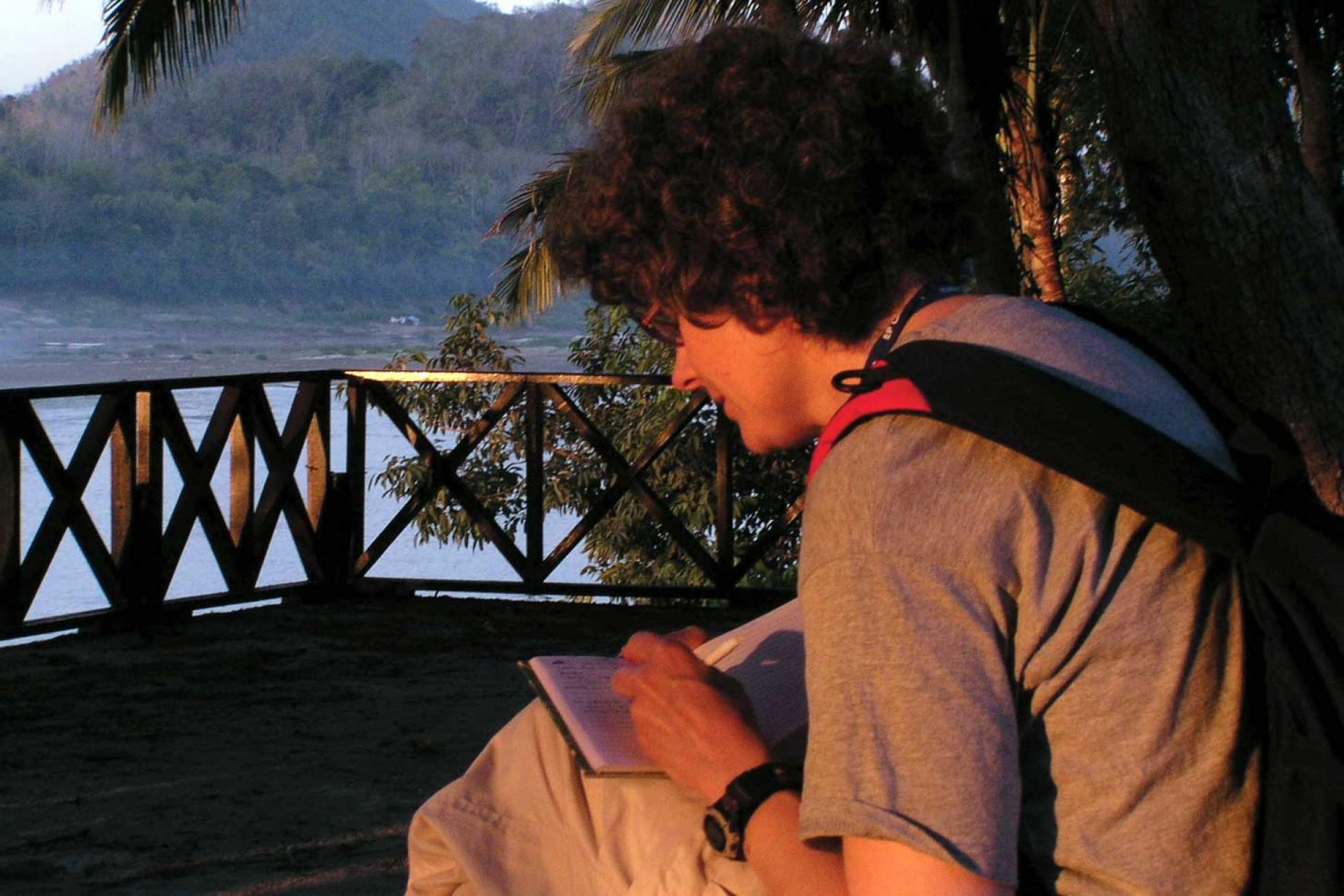Around the world in 80 travel-writing assignments? Only if you're lucky. Travel writer Julia Steinecke sheds some light on one of the world's most appealing and misunderstood professions.
Travel writing is... huddling in my luxury hotel room over a bowl of instant noodles that I boiled in the coffee maker. The tourism board put me up but didn't pay for my meals and I can't even afford a sandwich in this town.
Travel writing has the kind of glamour attached to it that makes people think you're willing to do it just for the cool factor.
Travel writing is knowing the best place to sleep on the floors of several major airports in Latin America.
Travel writing is suddenly realizing I haven't left my home for two days because I've been sitting in front of my computer writing sponsorship requests to airlines, hotels and tourism boards.
And, yes, travel writing is seeing the world for cheap, hiking through deserts, cloud forests and traffic, meeting villagers, grandmothers, partiers and activists from every continent. At the end of the day, I throw down some words and wrestle with them for a long time, trying to evoke the taste, touch and smell of what happened. As for the free flights, hotels and booze, I can only scrounge for them now that I have a regular column and an editor who gives firm assignments.
Here are a few tips to avoid personal and financial ruin while you chase after one of the world's most appealing and misunderstood professions.
1. Figure out what else you're going to do
Travel writing works better as a co-career along with a flexible but relatively stable money-maker. I'm an on-call relief worker in a women's shelter and a drop-in centre in Toronto. Some travel writers do other forms of freelance writing, though it can be hard to get time off from their clients. Some are schoolteachers who travel during summer holidays. Another option is to develop an internationally marketable skill like bartending, medicine or teaching ESL; then you can live and file your stories from abroad.
2. Get connected
You need a lot of solid networks before you go freelance. Don't make the mistake I did of trying to segue directly from poetry writing to travel writing. Poetry is a great foundation for the writing part, but all the wonderful poets I know just smile kindly and wish me well as I plunge headlong into the crass world of writing for money. If I could do it all over again I might have added a little journalism school, an internship for a magazine, a stint as an editor somewhere. But, hey, why get established in five years when you can drag it out to ten?
3. Avoid writing for free
Travel writing has the kind of glamour attached to it that makes people think you're willing to do it just for the cool factor. Maybe you'll need to do a few pieces for free at the very beginning, but it's important to get out of that track as quickly as possible. Like any field, it's all about the people you know and what they know you for. It's bad news to become known as someone who's willing to work for free. It takes a long time to make good contacts in a competitive field like this, and you can't afford to spend that time in the non-paying circles, because you'll end up, just like that, going around in circles. Exceptions are shoestring literary publications or super-socially-worthwhile publications that struggle on sparse funding.
4. Get back to school
Look for a travel writing course at your local community college and check out the teacher's credentials. Is s/he widely published in the areas you're into, like newspapers, magazines, websites, guidebooks, radio or podcasts? Or, perhaps s/he has done video documentaries or news features on global issues. Make sure the course includes an opportunity to workshop travel pieces you've written. Study basic photography too, because good photos make your stories more marketable.
5. Just do it
Pick a destination and go. You can try somewhere that hasn't been written about too much (which is almost impossible), or you can come up with some original ideas and angles from an old destination. Research the place before you leave home and decide what you want to write about. For ideas, read all the recent news on the place and check the little fact boxes in Lonely Planet and Let's Go guidebooks. Interview people you meet on the trip to get lots of quotes that will make your story a fresh-from-the-field report rather than a rehashed guidebook summary. Jump in, turn on your five senses and make sure you huddle with your notebook or laptop or voice recorder every night and document it all.
6. Stop travelling!
Travel less often, but travel longer and write more. Milk each trip for the maximum number of stories. Look beyond destination pieces and travel publications: maybe there's a food story, a health story, a spirituality story, a political story, a community development story, a business story. On a few of my trips, I sat around and watched the locals working their butts off, then interviewed them and wrote stories for a labour magazine.
The world is your office. The pay bites but the perks rock and the views from your desk are always changing.
Julia Steinecke writes a monthly travel column for the Toronto Star travel section. Her work has also appeared in Our Times, LOTL, PlanetOut.com, Descant and many other publications. She has recently accepted the Editor's position at Verge - you'll be seeing more of her starting with our next issue. Some day she's going to get organized and offer some more travel writing workshops: for details visit www.JuliaSt.net.
Related Articles:
So You Wanna Be a Good Travel Writer?
Resources for Aspiring Travel Writers
Contribute to Verge Magazine
Resources for Aspiring Travel Writers
Confessions of a Guidebook Writer





